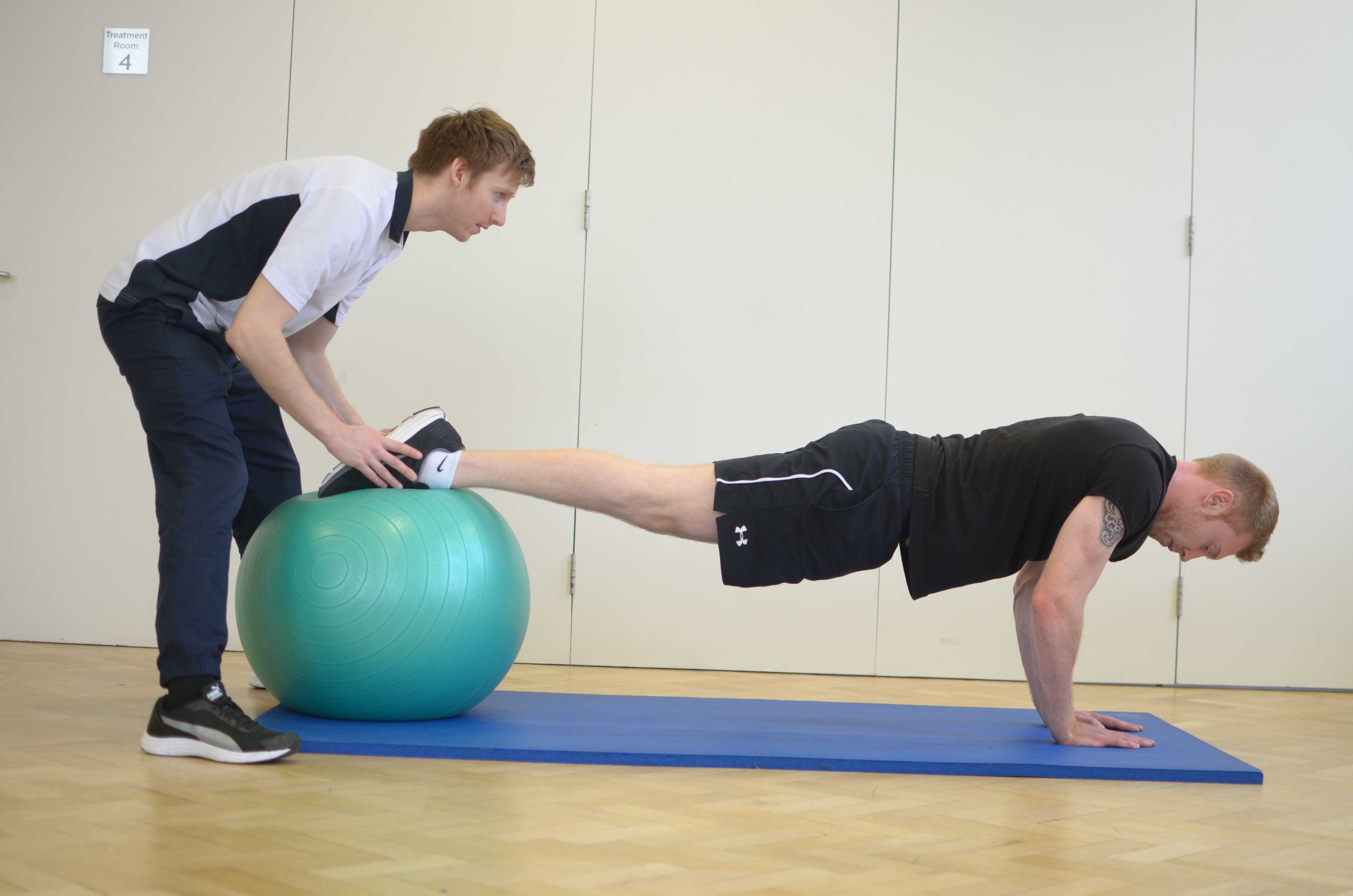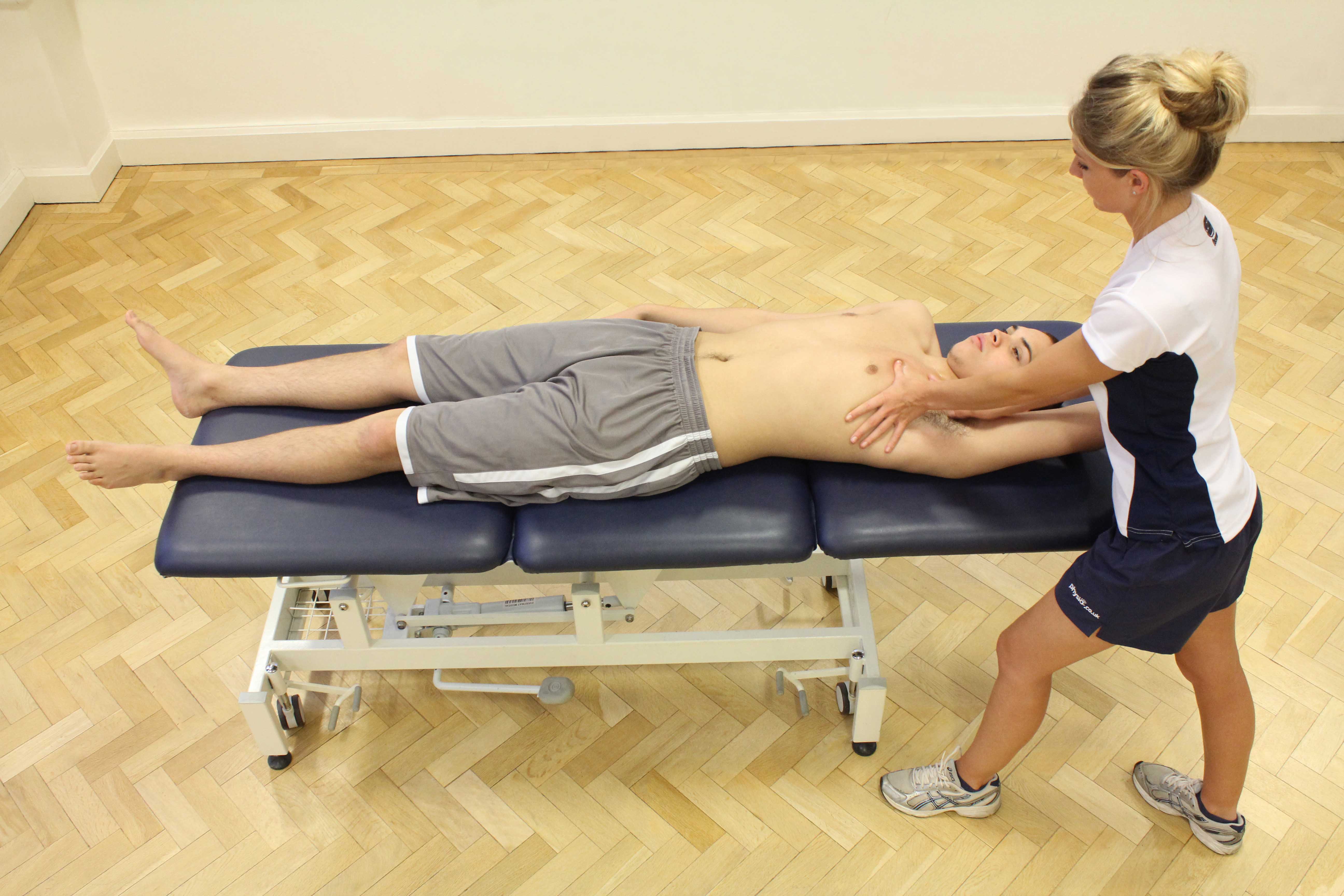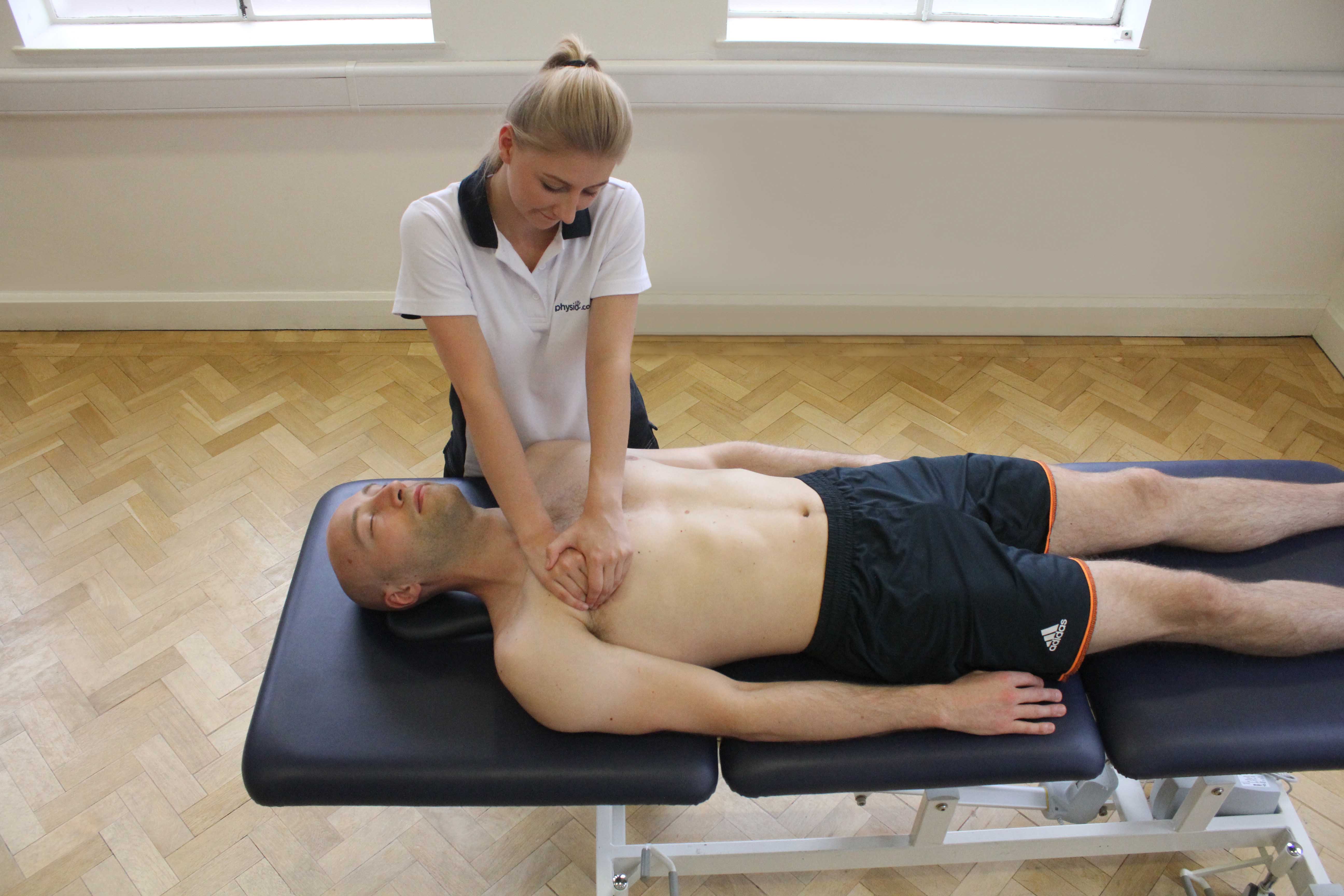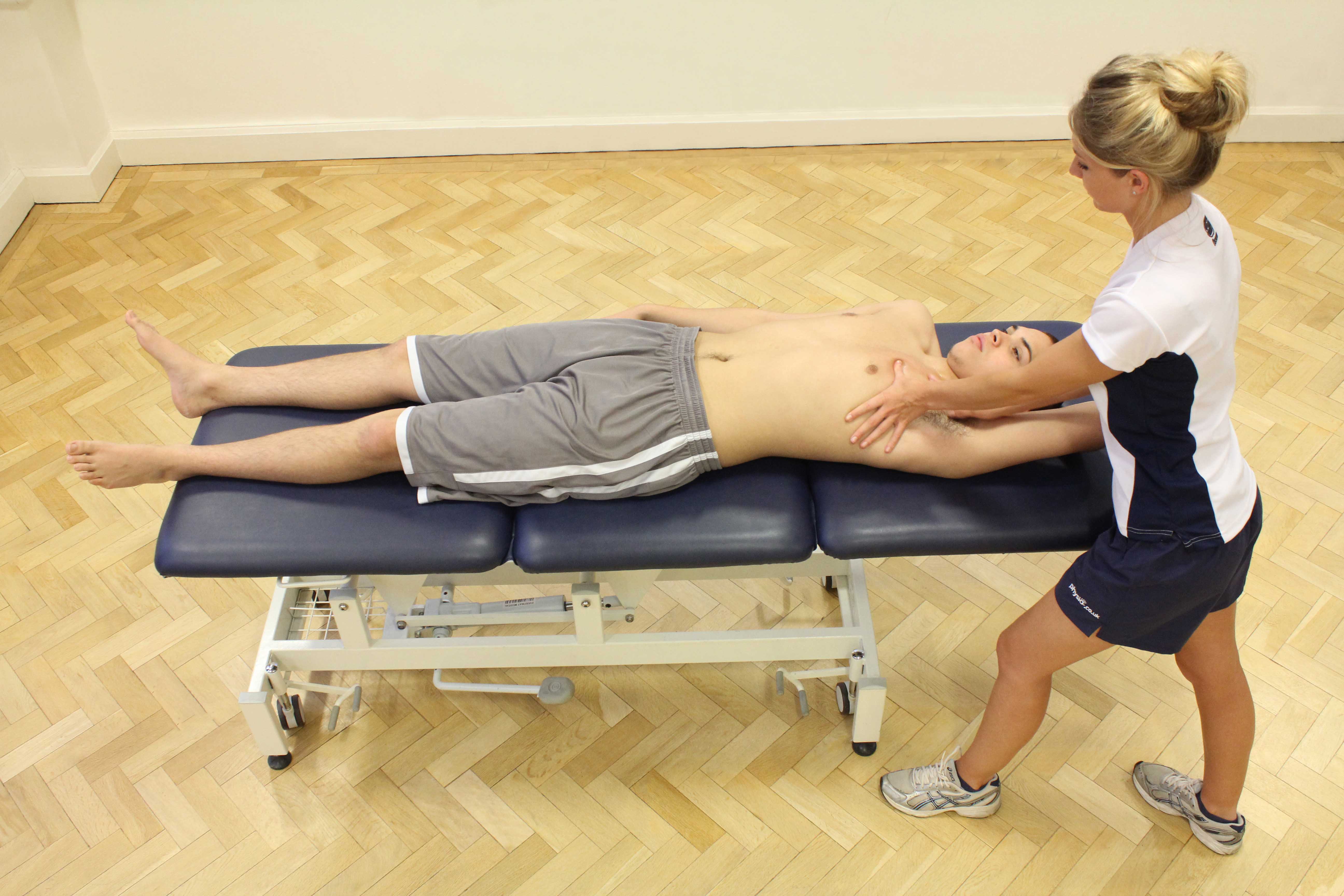What is a pec repair?
A pec or pectoralis repair involves surgery to correct a complete tear (rupture) or an incomplete tear on the pectoralis muscle. The pectoralis muscle is divided into the pectoralis major and the pectoralis minor. The pectoralis major is a thick, fan-shaped muscle, situated at the upper front of the chest. The pectoralis minor is situated underneath the pectoralis major and is a thin, triangular muscle. A person might tear either of these muscles and require surgery. Physiotherapy is very important after surgery and should be commenced as soon as possible to in order to regain optimal functioning.
 Above: Strengthening exercises for the chest muscles supervised by MSK Physiotherapist
Above: Strengthening exercises for the chest muscles supervised by MSK PhysiotherapistWhy would you have a pec repair?
The pectoralis muscle is generally damaged during forceful activities which include weightlifting, wrestling, rugby, and football.
The use of steroids can increase the risk of rupturing the pectoralis muscle.
What are the symptoms of a pectoralis major muscle rupture?
Patients who experience a pectoralis major rupture may feel sudden pain, and often a tearing sensation in their chest. Symptoms include:
- Pain in the chest and arm
- Weakness in pushing the arms out in front of the body
- Bruising in the chest and arm
- A dimpling, or pocket, formed just above the arm pit where the rupture occurred
 Above: Soft tissue massage of the chest muscle and connective tissues by specialist MSK therapist
Above: Soft tissue massage of the chest muscle and connective tissues by specialist MSK therapistWhat is the treatment of a pectoralis major muscle rupture?
Surgery is most often recommended for complete tears (rupture) of the pectoralis muscle. Surgery may not apply to people who have partial tears or tears within the muscle.
Surgery will be performed shortly after your injury. The surgery will involve placing large stitches in the torn muscle and then securing these stitches to the arm bone.
 Above: Soft tissue massage of the chest muscle and connective tissues
Above: Soft tissue massage of the chest muscle and connective tissuesPhysiotherapy following a pec repair
Physiotherapy is very important following your surgery to minimise the effect of scar tissue and weakness in the muscles. Physiotherapy should commence straight after your surgery in order to promote recovery. At Physio.co.uk our motivated physiotherapists will develop a graduated exercise program tailored to you in order to get you back to your full function as soon as possible. Physiotherapy treatment will include:
- Muscle strengthening exercises to prevent muscle weakness. Muscle strength around the shoulder is important to maintain good scapula rhythm and control.
- Stretching to reduce pain and stiffness. Physiotherapy treatment will also reduce the risk of developing a frozen shoulder which causes pain stiffness and limited range of movement in the shoulder.
- Mobilisation to increase range of movement and circulation in the pec, arm and shoulder.
- Soft tissue massage and stretching will reduce the risk of scar tissue adhesions after surgery.
- Exercise to help improve your posture.
- Treatment to reduce pain
 Above: Soft tissue massage of the chest muscle and connective tissues by specialist MSK therapist
Above: Soft tissue massage of the chest muscle and connective tissues by specialist MSK therapistIt will usually take between 4-6 months before you can do any strenuous exercise e.g. lifting weights. Physiotherapy treatment will help you get back to a level you were previously quickly. Our physiotherapists at Physio.co.uk will help you maximise your potential and get you back to your sporting or home activities as soon as possible. To book an appointment call 0330 088 7800, book online or alternatively request a free phone consultation.

 0330 088 7800
0330 088 7800


































